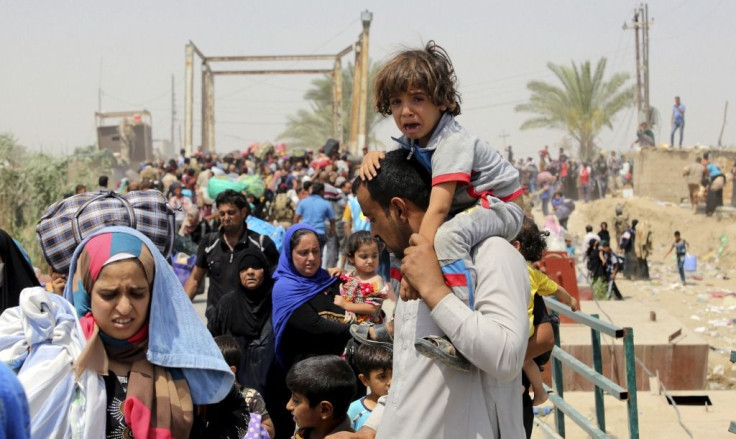Iraq Starts ‘Religious’ Operation Against Islamic State

Iraq started a major operation against Islamic State Tuesday to free its Anbar and Salaheddin provinces. The military operation began after Prime Minister Haider al-Abadi had claimed Monday to liberate Ramadi from Islamic State group forces.
The Ramadi counteroffensive was named Labayka ya Hussein, after the most respected figure in Shiite Islam, the name itself indicative of the operation's religious connotations.
The operation in Salaheddin province seeks to cut a supply route into Anbar. According to al-Hashd al-Shaabi media, there are also operations to liberate Baiji city and oil refiners. There will be additional military activities in the vicinity of Ramadi as well.
A banner on Iraqiya TV, Iraq’s state television channel, had a message from the defense minister. CNN translated the message as follows: “Vast operations are underway, coordinated between our Armed Forces and the heroic forces of al-Hashd al-Shaabi to liberate Ramadi from Daesh." Daesh is the Arab acronym for the Islamic State group, also known as ISIS.
Al-Shaabi spokesman Ahmed al-Assadi said that it was a continuation of the Tikrit operation. He confirmed that the Iraqi prime minister had made the call and the militia responded to it. He said that the supply route from Baiji oil refinery in the north to Ramadi would be cut.
Iraqi authorities did not reveal how many forces were involved in the military operation. Nor was it disclosed when exactly the ground operation had started.
After claiming to regain Ramadi within days, Abadi said that al-Shaabi was advancing. The militia group is working with Iraq military police against ISIS militants. There are reports that ISIS forces are seeking reinforcements to defend Ramadi.
The United States earlier criticized Iraq for not having “the will” to fight against ISIS forces. U.S. Defense Secretary Ash Carter said that it was untrue that the Iraqi forces had been outnumbered by ISIS militants. He blamed it on the lack of determination.
Abadi was initially hesitant to send the militias, as he was worried about sectarian pressures. The Washington Post reported that Iraqi Sunnis felt marginalized by the Shiite government. However, it is believed that part of the Sunni community has been involved in the operations.
© Copyright IBTimes 2024. All rights reserved.





















